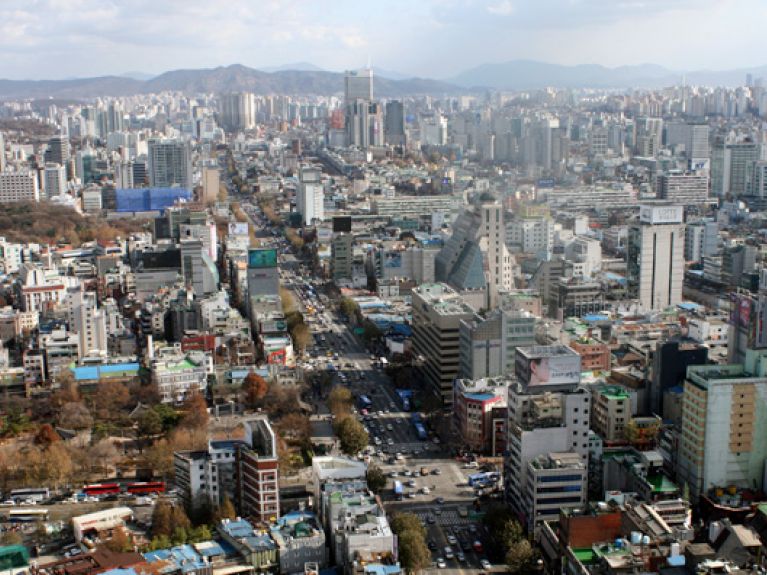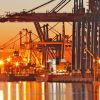Blueprint for other Asian countries
The European Union-South Korea Free Trade Agreement has been a complete success. An interview with Barbara Zollmann, Secretary General of the Korean-German Chamber of Commerce and Industry.

Ms Zollmann, the European Union’s free trade agreement with South Korea, its first with an Asian country, appears to be a success. What are the latest figures for Germany?
Although economic growth is slowing down, there has been a very positive development in German exports to Korea. After an increase of 9.6% in 2013, exports of German goods to Korea in 2014 again rose by 10.1% to a total value of 21.3 billion US dollars. As a result, Germany ranks sixth among Korea’s most important suppliers – behind China, Japan, the USA, Saudi Arabia and Qatar. In the opposite direction, Germany imported Korean goods worth a total of 7.57 billion US dollars in 2014.
Which sectors are experiencing the highest rates of growth?
German products have generally performed very well in Korea in recent years. If we take a look at the most important sectors, imports of German motor vehicles were able to register a 48.1% increase by September 2014 compared to the same period in the previous year, while imports of medical technology and pharmaceutical products rose by 22.4% and chemical products by 13.3%. Beyond the traditionally strong German export sectors, there have also been other significant developments: for example, the food sector has experienced surprisingly strong growth. The value of German food exports rose to 341 million US dollars in 2013 from 82 million US dollars in 2009. Exports of German sweets have proved especially successful (a 58.3% increase compared to 2012 to a total value of 36.1 million US dollars) and so have beverages like beer and juices (to a total of 27.3 million US dollars).
It has been said that the free trade agreement is a new generation of treaty. What makes it special?
When the free trade agreement came into force in 2011, it was already possible to conduct 90% of the trade in industrial goods between the two countries without tariffs. Customs duties on all industrial goods will be removed by 2018. In 10 to 18 years, all duties will also be eliminated for 95% of agricultural goods. Only a small number of agricultural products – including rice – were excluded. This means that when it comes to tariffs the European Union-South Korea Free Trade Agreement is considerably ahead, among the top group, compared to other agreements. Furthermore, a number of restrictions were also removed in the services sector. This applies to barriers to market access in the fields of telecommunication, environmental, financial, accounting, auditing and taxation services. In addition, the agreement also contains provisions that go beyond the rules of the World Trade Organisation – what are known as WTO Plus rules. For example, these include improved access to public procurement markets, protection of intellectual property rights and recognition of the principle of sustainable development. Another important point is that the implementation of the agreement is being monitored with the aid of several subject-related bilateral working groups and committees. These points of contact will also make it possible to directly address problems with the implementation of the trade agreement in the future. Admittedly, this process is very slow.
Will the agreement be upheld? Or is there further potential for improvement?
When it comes to non-tariff barriers to trade, there is indeed still room for improvement. Examples here include a broadening of the labelling requirements for many product groups or the introduction of special Korean certification obligations, although European certification of a high standard is already available. This is where the asymetrical nature of the agreement is especially evident: European companies have to make these efforts for a relatively small – but high-spending – market, while the Korean side immediately gains access to a market with 500 million inhabitants.
Is the free trade agreement a suitable blueprint for other Asian countries?
Fundamentally, the European Union-South Korea Free Trade Agreement is a good model. The conclusion of similar agreements – particularly in the absence of a multilateral solution – would greatly benefit German companies not only with regard to the range of customs exemptions, but also the breadth of additional regulations. The existence of good and effective mechanisms for monitoring implementation are important to ensure that the effects of tariff reductions are not undermined by the establishment of non-tariff barriers to trade.
Last year, South Korea also negotiated a free trade agreement with China. It now has ties with all three large economic blocs. What role do you believe South Korea can assume in the near future?
By applying its “fast follower” strategy, Korea has successfully risen to its current position as one of the world’s leading economic nations. In relation to emerging countries like China, however, there is now practically no other course open to Korea than the leap to “first mover” status and defining future technological advances through its own independent development. These points will define Korea’s future role. ▪
Interview: Martin Orth

